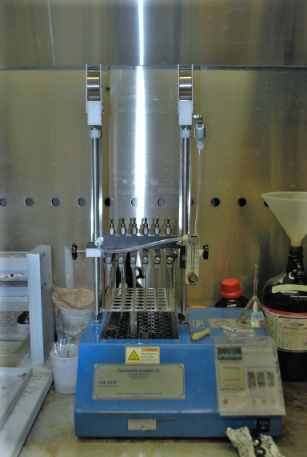
BC Children's Hospital has been leveraging advanced equipment like the MULTIVAP blowdown evaporator in their cutting-edge metabolic research. This sophisticated piece of equipment enables rapid and efficient evaporation of volatile solvents, crucial for preparing samples in metabolomic studies.
In addition to the MULTIVAP blowdown evaporator, the hospital's research is supported by the Analytical Core for Metabolomics and Nutrition (ACMaN) facilities. These facilities house a range of advanced analytical instruments that significantly enhance the research capabilities. Key equipment includes:
- Mass Spectrometers: These are used for precise measurement of metabolites, helping in the identification and quantification of various compounds in biological samples.
- High Performance Liquid Chromatographs (HPLCs): Essential for separating, identifying, and quantifying each component in a mixture, HPLCs are vital in metabolomics for profiling complex biological samples.
- Gas Chromatographs: Used for for analyzing compounds that can be vaporized without decomposition, these are particularly useful for the analysis of volatile organic compounds.
- Automated Immunoanalyzers: These instruments automate the process of immunoassays, increasing throughput and accuracy in detecting specific proteins and other molecules.
- Spectrophotometers and Osmometers: Basic but crucial tools for measuring the concentration of substances in samples and the osmotic concentration, respectively.
One significant advantage of the MULTIVAP blowdown evaporator is its ability to process samples under an inert gas (Nitrogen) atmosphere. This feature is crucial in metabolomics research, where preventing oxidation of sensitive sample components is vital. Oxidation can alter the chemical structure of metabolites, leading to inaccurate results. By using nitrogen, the MULTIVAP ensures the integrity and stability of metabolites during the evaporation process, thereby enhancing the reliability and accuracy of the research findings.
Moreover, the MULTIVAP blowdown evaporator allows for the concentration of up to 80 samples in parallel, providing significantly more capacity than the TurboVap LV at a more affordable price point. This higher throughput capability is particularly beneficial in large-scale metabolomic studies where processing numerous samples efficiently is essential.
Using nitrogen blowdown to concentrate samples is preferable over other evaporation techniques for metabolomics due to its ability to maintain sample integrity. Traditional evaporation methods, such as rotary evaporation, often expose samples to heat and oxygen, which can lead to the degradation of sensitive metabolites. Nitrogen blowdown, on the other hand, provides a gentle and inert environment, reducing the risk of oxidation and thermal degradation. This approach ensures that the chemical composition of metabolites remains unchanged, providing more accurate and reliable data for metabolomic analysis.
The combination of these advanced instruments and the MULTIVAP blowdown evaporator enables researchers at BC Children's Hospital to conduct comprehensive and precise metabolic research, ultimately contributing to better understanding and treatment of various metabolic disorders in children.
For more detailed information about the facilities and equipment used at BC Children's Hospital Research Institute, you can visit their page dedicated to Analytical Core for Metabolomics and Nutrition.
(Photo: Researchers at the University of British Columbia Children's Hospital are using Organomation's 80 position MULTIVAP for metabolomic research. Photo credit: BCCR)
Last Updated 8/5/24
